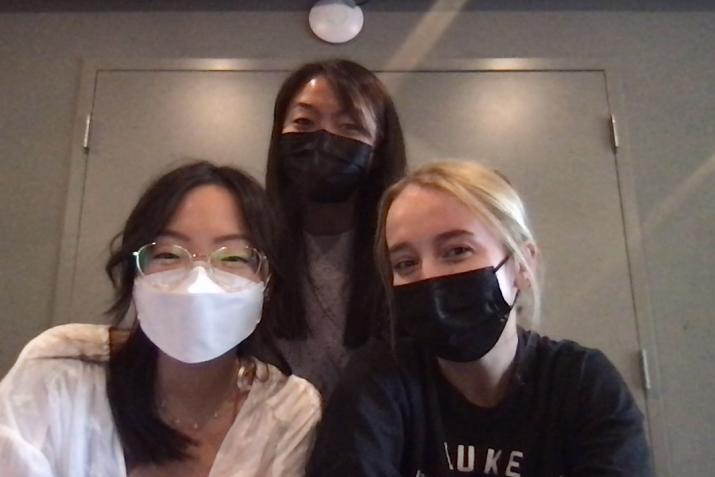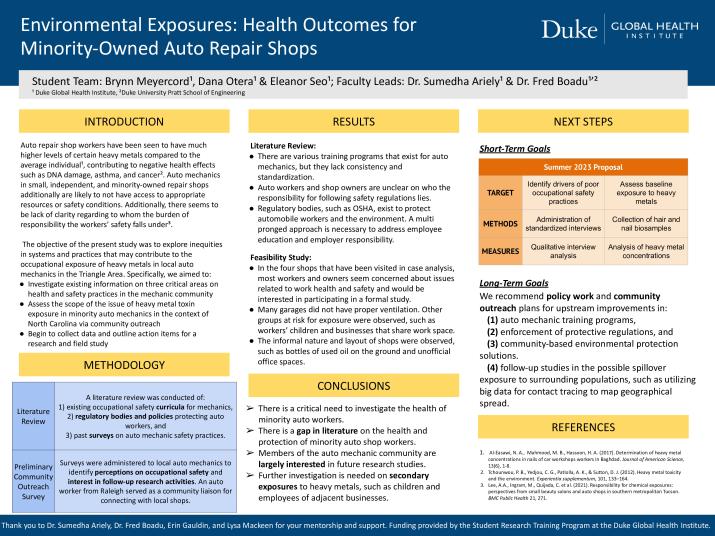Environmental Exposures: Health Outcomes for Minority-Owned Auto Repair Shops

Project member(s):
-
Brynn Meyercord
Dana Otera
Eleanor Seo
Faculty mentor:
Community partners:
-
Jonas, community liaison
- Feedback? Contact the team
Environmental Exposures: Health Outcomes for Minority-Owned Auto Repair Shops
Project overview
According to the National Institute for Occupational Safety and Health, the death rates among workers in auto repair and auto body shops among African Americans and Hispanics are relatively high compared to whites (U.S. Bureau of Labor Statistics, 2020). In the Southern United States, small, independent, minority-owned auto-mechanics shops located in low-income neighborhoods are likely at risk for adverse health effects. Previous research provides evidence of this issue on a global scale. Recent studies on the health status of auto workers in Ghana has indicated high levels of heavy metals with associated elevated blood pressures. Subsequently, the Durham SRT team inquired if the health and safety practices of minority auto workers in the Triangle Area would be similar to auto workers in Ghana. Specifically, the team hypothesized that these workers likely do not have access to appropriate resources or safety conditions, and there may be lack of clarity regarding to whom the burden of responsibility the workers’ safety should fall under (Lee et al. 2021). This project aims to explore these inequities in systems and practices contributing to the occupational exposure to heavy metals in auto mechanics. Additionally, the scope of these aims were contextualized in the local, minority auto mechanic community in Durham and Raleigh, North Carolina.
Video highlight
Brief video from highlight from team...
Project notes
References:
1. Lee, A.A., Ingram, M., Quijada, C. et al. (2021). Responsibility for chemical exposures: perspectives from small beauty salons and auto shops in southern metropolitan Tucson. BMC Public Health 21, 271.
2. U.S. Bureau of Labor Statistics. (2020). Census of fatal occupational injuries summary, 2019. U.S. Bureau of Labor Statistics. https://www.bls.gov/news.release/cfoi.nr0.htm.
Last updated on June 26, 2023
